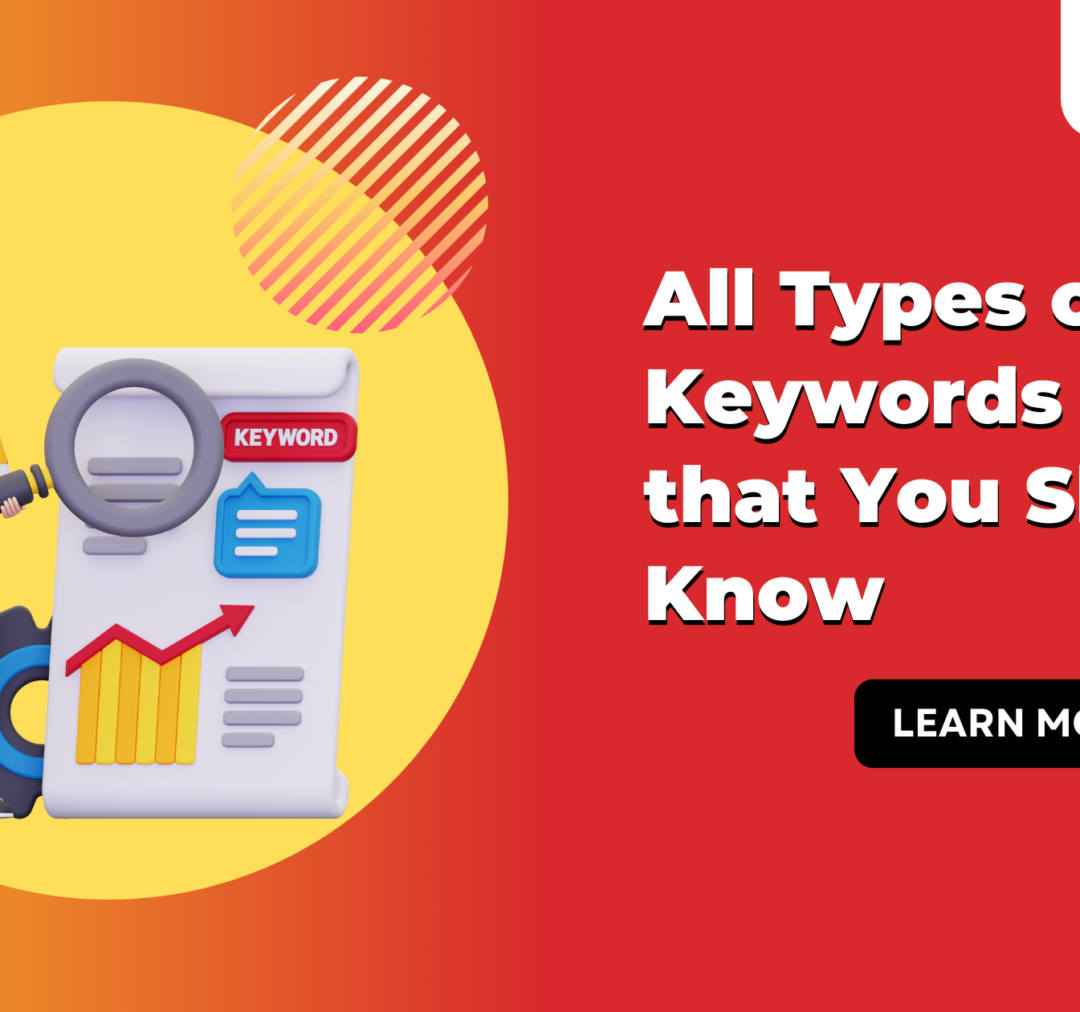In the world of SEO, keywords play a pivotal role in determining the success of your digital marketing efforts. Whether you’re crafting content, optimizing web pages, or running ads, understanding the types of keywords is crucial. Keywords boost organic traffic while also connecting your content to user search intent. In this article, we will explore seo types of keywords that you should know to improve your search engine rankings and overall SEO strategy.
What are SEO Keywords?
Understanding what is an SEO keyword and how to leverage it in your strategy is essential for long-term success. SEO keywords are terms or phrases that users type into search engines when looking for information, products, or services. They act as a bridge between what people are searching for and the content you create to fulfill that need. Using the right keywords for SEO can boost your rankings, improve visibility, and generate qualified leads for your business.
Types of Keywords in SEO

There are several types of keywords that marketers use to improve their SEO performance. Below are the primary keyword types:
1. Short-Tail Keywords
Short-tail keywords are brief and generic. They typically consist of one or two words, such as “shoes” or “SEO.” These keywords tend to have high search volumes but are highly competitive. While short-tail keywords can bring a lot of traffic, they often lack specificity and might not convert well.
- Example: SEO marketing keywords, SEO types
2. Long-Tail Keywords
Long-tail keywords are extremely specific phrases consisting of three or more words.They tend to have lower competition, making them easier to rank for in search engine results. Long-tail keywords target users who are closer to making a purchasing decision or those with specific needs.
- Example: types of keywords, what are SEO keywords, types of keyword in SEO
3. Branded Keywords
Branded keywords include the name of a brand or business. These are useful for businesses looking to strengthen their online brand presence and drive traffic from users who are already familiar with the brand.
- Example: “Prashantji Services SEO”
4. Non-Branded Keywords
These keywords do not include any specific brand name but focus on general industry terms. They are ideal for attracting new customers who may not know about your brand but are looking for the services or products you offer.
- Example: seo types of keywords, keywords in digital marketing
5. Product Keywords
Product-related keywords focus on specific products or services. These keywords are particularly useful for e-commerce websites or businesses offering specific solutions.
- Examples: “purchase Adidas footwear” or “SEO services in India”
6. Geo-Targeted Keywords
Geo-targeted keywords include a location, such as a city, state, or country. These are essential for local SEO and help businesses attract customers from a particular geographic area.
- Examples: ” Social media markting agency in Delhi ,” “Google ads agency in Pune,”
7. LSI Keywords (Latent Semantic Indexing)
LSI keywords are words or phrases that are contextually relevant to your primary keyword. They assist search engines in grasping the overall meaning of your content, enhancing its relevance for targeted searches.
- Example: For seo types of keywords, LSI keywords could be “SEO strategies,” “types of keyword in SEO.”
8. Transactional Keywords
Transactional keywords are used by people who are ready to make a purchase or take some action. These keywords frequently include words like “buy,” “discount,” and “deal.”
- Examples: “buy t-shirts on the internet,” “best grocery deals”
9. Informational Keywords
These keywords are used by users who are looking for information rather than to make a purchase. They typically start with “how,” “what,” or “why” and are useful for attracting traffic during the awareness stage of the buyer’s journey.
- Example: what is SEO , types of keyword
10. Commercial Keywords
Commercial keywords indicate that a user is considering a purchase but is still in the research phase. These often include words like “best,” “review,” or “top.”
- Example: “best SEO agency,” “top SEO strategies”
11. Seasonal Keywords
Seasonal keywords are related to specific events or holidays. These keywords are only relevant for a short period but can generate significant traffic if targeted correctly.
- Examples: “Monday SEO techniques or holiday season marketing strategies”
12. Competitor Keywords
These keywords focus on your competitors’ brand names or products. By targeting competitor keywords, you can attract users who are considering other options in your industry.
- Example: “Moz SEO tools,” “Ahrefs vs SEMrush”
How to Choose the Right SEO Keywords?
Selecting the right SEO types of keywords requires more than just guessing what people might search for. Here are some essential tips for choosing the right keywords:
- Conduct Keyword Research: Use tools like Google Keyword Planner, SEMrush, or Ahrefs to find the types of keywords that your audience is searching for. Focus on finding keywords with a good balance of search volume and low competition.
- Analyze Competitor Keywords: Look at the keywords your competitors are ranking for and identify gaps where you can outperform them.
- Focus on Long-Tail Keywords: Since long-tail keywords are more specific, they are easier to rank for and tend to have a higher conversion rate. Incorporate long-tail keywords like seo types of keywords, keywords in digital marketing, and types of keyword into your content strategy.
- Optimize for Voice Search: With the rise of voice search, it’s crucial to target conversational queries and long-tail keywords. People often use more natural language when using voice search, so consider optimizing for questions and full sentences.
- Regularly Update Keywords: SEO is an ongoing process in which keyword trends change over time. Regularly review and update your keywords to stay competitive and relevant.
How to Use Keywords Effectively in SEO?
Simply choosing the right seo types of keywords isn’t enough. You also need to know how to use them effectively in your content to maximize your SEO results.
1. Incorporate Keywords in Titles and Headings
Your title should include your primary keyword to make it clear what the content is about. Use headings (H1, H2, H3) to incorporate your types of keywords and make your content more structured.
2. Use Keywords Naturally
Avoid keyword stuffing, which might affect your rankings. Aim to use your primary keyword and long-tail keywords like types of keyword in SEO, seo types, and keyword types 10-15 times.
3. Optimize Meta Descriptions
Meta descriptions should include your seo types of keywords and provide a clear summary of your content. A compelling meta description can improve your click-through rate, which is a ranking factor for search engines.
4. Include Keywords in Image Alt Text
Make sure your images are SEO-friendly by including keywords in the alt text. This helps search engines understand the content of the images and can improve your image search rankings.
5. Monitor and Adjust Keyword Performance
Use tools like Google Analytics to monitor the performance of your keywords. If certain types of keywords are driving traffic and conversions, continue optimizing for them. If others are underperforming, consider adjusting your strategy.
Conclusion
Understanding the various types of keywords is crucial for any successful SEO strategy. Whether you’re targeting short-tail or long-tail keywords, branded or non-branded, it’s essential to choose the right keywords for SEO based on your audience’s search intent and your business goals.
By focusing on relevant SEO types of keywords like long-tail, branded, and geo-targeted terms, businesses like Prashantji Services can improve search engine rankings and connect with potential clients more effectively. SEO is an evolving field, and consistent optimization of your keywords for SEO will keep your brand competitive. At Prashantji Services, we believe in adapting our strategies to stay ahead, ensuring your digital marketing efforts deliver measurable results.








